There are many different roles within the security industry, and many varied environments in which security officers will work, so when it comes to uniform, there is no such thing as “one size fits all”. See what I did there?
Fashions and the preferences of clients, change from time to time. Add to this the requirement for officers to wear appropriate P.P.E. on some assignments and the issue becomes even more complicated.
Perhaps the easiest way to look at the most appropriate security uniforms, is to examine one sector of the industry at a time.
Firstly, let’s have a look at the door supervision sector.
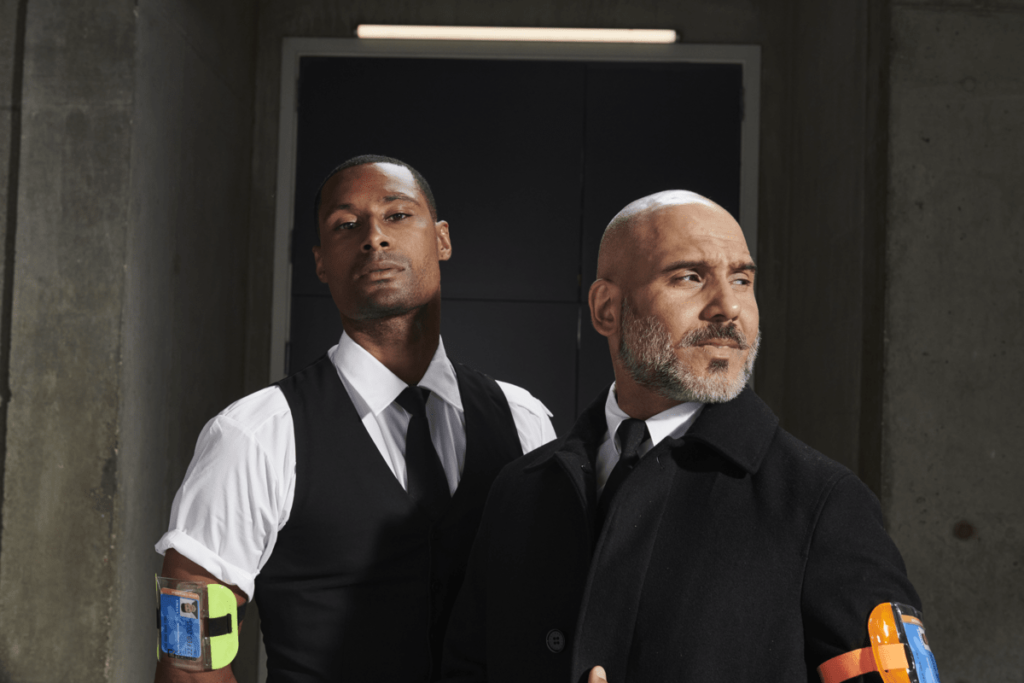
Venues tend to have their own dress codes for their door staff. Some pubs and clubs still like the old style “bouncer” look with black shoes and trousers being topped off with a black NATO style, ‘puffy’, bomber jacket. This was the favoured look for many years as it tended to make the upper body of the wearer look bigger, and in theory, would deter any violence from drunk punters.
This is still seen at many venues, sometimes augmented by a body cam attached to the front of the jacket. Just briefly, body cams or Body Worn Video (BWV) have proven a highly effective way of deterring violence against security officers. When the worst does happen then these devices can also provide high quality video and audio for evidential purposes. As an inevitable consequence of the violence levels frequently encountered, this equipment is increasingly deployed on the doors of licensed premises.
More upmarket assignments prefer their door staff to wear dark suits, white shirt and a black tie. Some more old school sites like casinos or landmark venues still like their security personnel to wear the traditional dinner jacket and black bow tie.
Frankly. The almost universal security officer default outfit is a dark jacket, white shirt, black shoes and a black tie, but ALWAYS use a clip on or quick release tie. If you wear a normal long tie and somebody makes a grab at it during a disagreement then what was very smart attire, becomes a garrot!
More advanced P.P.E.
Sadly, due to the risk of violence against security officers in some areas, many more advanced forms of P.P.E. are becoming commonplace. Once only ever seen worn by the Police or Military, stab vests are now a regular feature on security officers that work in a public facing role. For security officers that find themselves in a role where they are asked to conduct bag or person searches, then puncture proof gloves are absolutely essential to prevent wounding caused by needles.
Knives terrify me. For some people however, carrying an edged weapon is as normal as wearing a wrist watch. There are now companies that produce slash resistant sleeves. These allow the wearer to defend themselves from a knife attack, far more decisively and robustly.
How about dog handlers and alarm response officers?
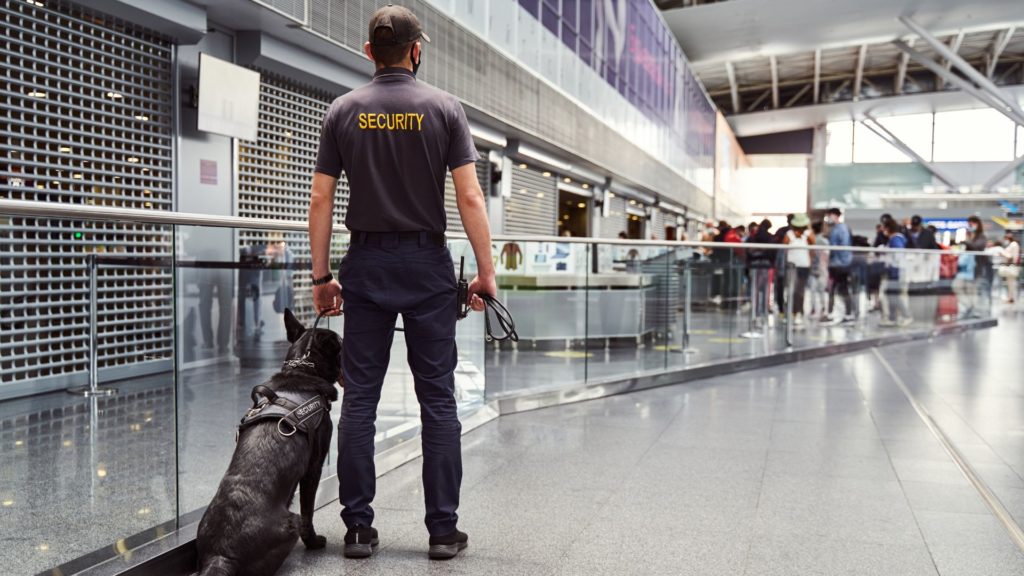
These roles often work alone and perform night shifts. A Hi Vis jacket or vest is popular, and in some environments, essential. Storage is important as these Officers need to carry quite a bit of kit. Combat trousers are pretty universal in this sector these days. The extra pockets coming in handy for things like a mobile phone, torch, personal 2 way radio, notebook and pen, patrol logging device and sometimes, for those properly trained to use them, handcuffs. Body worn video is also widely found again in this sector. Shirt and ties tend to be abandoned in favour of Polo shirts to aid movement and comfort. I often chuckle at some of the dog handlers I know that wear a “tactical belt” with more storage pouches than your average special forces soldier on a mission. These tend to end up containing a packet of cigarettes and a lighter, some dog treats, breath mints, and a multi tool. I was impressed on a couple of occasions when I found that the belt pouches contained a first aid and trauma kit. Bravo.
Construction, logistics, and traffic management.
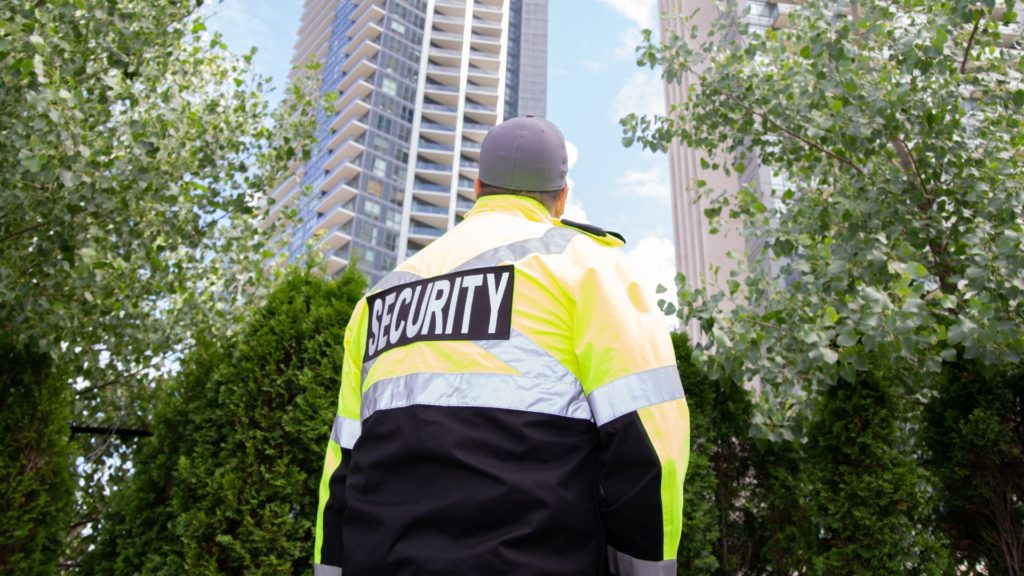
In these sectors, visibility is of paramount importance. Many sites that are busy with lorries coming and going require 360 degree hi-vis. This means a high vis jacket with sleeves, and high vis trousers. Protective boots will be needed in most circumstances as a heavy pallet being dropped on your foot or a lorry running over your toes is a real possibility. Building sites will also require protective headwear. These hard hats are lightweight but immensely strong and have quite literally, saved countless lives. You will probably need to carry a 2 way radio in all of these environments, enabling you to summon assistance or report issues before they become problematic.
The corporate and education sectors.
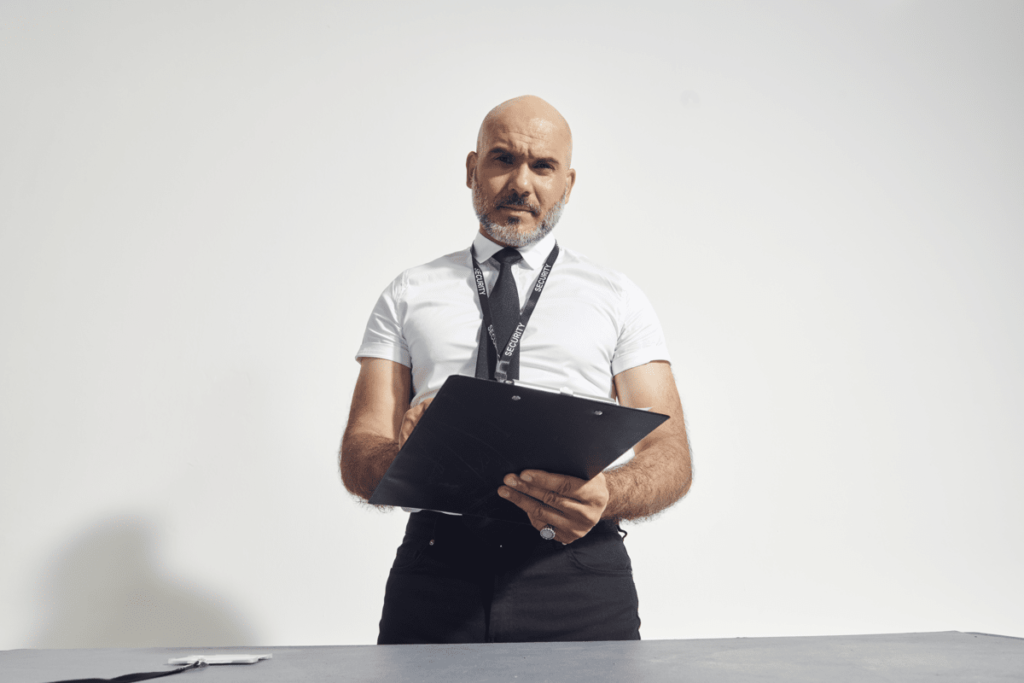
When I say corporate, I mean any office security role. With a more limited chance of physical disagreement and reduced risk of injury, uniform is all about portraying the desired company image. Suits are back again, along with many styles of military based uniform. Personally, I’d keep using the clip on style tie unless specifically told otherwise. Better to wear the safe uniform option and not need it, than to need it and not be wearing it.
A note about P.P.E.
Any form of uniform that is specifically required for your safety and wellbeing is a form of P.P.E. Foul weather jacket for those working outside in the cold, Hi Vis clothing, protective over trousers or clothing, hard hat, waterproof kit, safety footwear, goggles or gloves for example. By law, this P.P.E. must be provided completely free of charge by your employer. If an employer does try to lump this PPE kit in with other uniform for which it charges, point out that it needs to remove any charge for PPE. (Or show them this.)
Historic security uniform.
For many years those joining the security industry from the military would gravitate to a company then called the Corps of Commissionaires. Commissionaires wore an immensely smart uniform, highly reminiscent of a full dress military outfit. Polished buttons, “bulled” black leather shoes and belt and a white flat hat distinguished them from other security officers. As times and fashion changed, this seemed increasingly officious and intimidating for everyday deployment and the writing was on the wall. The company, now just called Corps Security, still has a cohort of officers with the traditional uniform, often seen at special events and at high profile sites.
Personally, call me old fashioned, but I kind of miss seeing it.
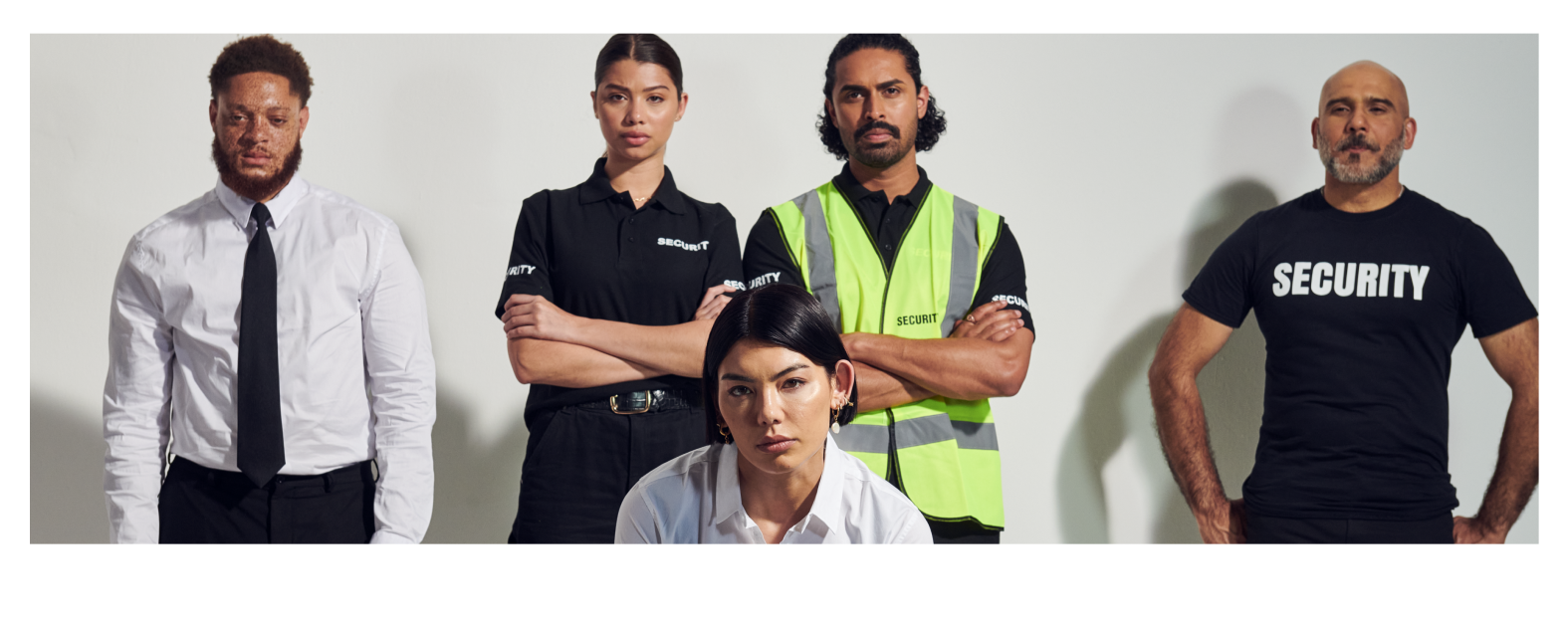

Leave a Reply